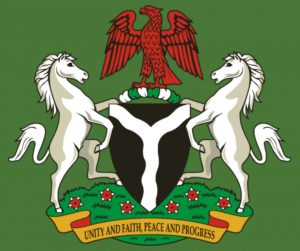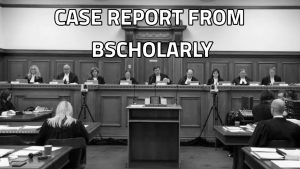Lakanmi v AG Western State: The Constitution is the grand law of the Country that prescribes how a country is run. It establishes the bodies that constitute the government and their functions, as well as the kind of government that will operate in a State; whether a federal government, a presidential government, a unitary government, etc. The Constitution makes for certainty of functions and limitation of powers; it prescribes to what extent the principle of separation of power will operate in a country and how checks are to be done.
The Constitution ensures that the government, in exercise of political power, does not deprive the citizens of fundamental human rights that are usually guaranteed and protected by the Constitution. Thus, a Constitution usually protects against the forceful taking of governmental powers and provides for the process by which these governmental powers will be obtained.
However, there have been cases in Nigeria, as also have been in other countries, where the Military has taken over power by force, making for a Military regime. The first thing that is done in a Military regime is usually the suspension of certain provisions of the Constitution and an attempt to legally violate the rights of citizens by making Decrees and Edicts to that effect.
The case of Lakanmi v. AG of Western State is instructive in examining the role of the court in a Military regime and how the court demonstrates that it is indeed the last hope of the common man.This is especially in light of the fact that the power of the Judiciary is often attempted to be snatched by the Military Government in its bid to operate an oppressive government.

Also see: How to become a successful lawyer – Top legal qualities you need
Fact Summary of Lakanmi v AG West
Lakanmi was a corrupt public officer during the Military regime, the Gowon regime, to be precise. As a result, the Western States Military Government set out to investigate his asset, as well as that of other public officers, in 1970. The Government set up a commission of inquiry which investigated the public officers and found them guilty of corruption and recommended that their assets be forfeited to the Military Government.
Lakanmi and other public officers, aggrieved by the tribunal’s decision, applied to the High Court of Ibadan for an Order of Certiorari to quash the tribunal’s order on the ground that the order which was made under the Public Officers and other Persons (Investigation of Assets) Edict No 5 of 1967 was inconsistent with the provisions of the Public Officers (Investigation of Assets) Decree of 1966, and so, it was invalid.
Three more Decrees were promulgated by the Federal Military Government between the period when a decision was made in the High Court of Ibadan and the time when a decision was made in the Western State Court of Appeal.
One of the Decrees had provisions that validated orders made pursuant to any enactment; excluded the provisions of the Constitution on Fundamental Rights; ousted the jurisdiction of the court to determine the validity of a decree; and also to nullify pending suits with regards to any decree.

RECOMMENDED: Advantages and Disadvantages of Judicial Precedence
Issues Determined by the Court
1. Whether or not the order of the tribunal to forfeit the appellants’ properties was valid.
2. Whether or not the Military Government was a constitutional interim regime intended to save and administer the country temporarily or it was a revolutionary regime where the Constitution was overthrown as a result.
Recommended: Salary of lawyers in Nigeria – See how much lawyers earn monthly
Decision of the court in Lakanmi v AG Western State
The High Court of Ibadan held that the Public Officers and other Persons (Investigation of Assets) Edict No 5 of 1967 was valid and dismissed the suit. It also stated that the court had no jurisdiction to determine the validity of the order made by the Western State Military Government, as the jurisdiction of the court to determine the validity of any order made by the court had been ousted by the Military Government.
Lakanmi and the other Public officers appealed to the Western State Court of Appeal where the suit was dismissed.
The appellants appealed to the Supreme Court.
Here, the appellants’ Counsel Chief F.R.A Williams, argued that the Federal Military Government was a Constitutional interim government, not a revolutionary government and thus, it had a duty to uphold the Constitution, not violate or derogate from the Constitution unless it does so necessarily, that is, under the principles of necessity. He argued that a Decree could only take priority over the Constitution where the decree has amended the Constitution. He argued that the Decree No. 45 of 1968 was an usurpation of the power of the court to determine issues and of judicial review, as the Decree sought to validate the Order made by the Military Government. He contended that the order of the asset tribunal was not valid.
The defendant, AG of the Western States, on his part, contended that a Decree could not be challenged by the Court in light of its lack of jurisdiction to do so, once such a Decree had been signed.
The defendant also contended that the regime was a revolutionary one and not a Constitutional interim regime and that use of force was justified.
Thus, the court was faced with the issue of whether the Constitution was overthrown and whether there was no restraint on the power of the Military.
The Court held that the Decrees and Edicts that were promulgated for the purpose of confiscating property in general and the appellants’ property, in particular, were void.
The Court held that the purpose of the rule was an interim one whose purpose was to save Nigeria from imminent chaos and that it did not overthrow the Constitution or justify the taking of the appellants’ property by force.

Also see: Exceptions to delegatus non potest delegare rule
It is worthy of note that the judgement of the Supreme Court was later annulled by the Federal Military Government. However, the case was a realization of the limits on the power of the Military Government to deprive the citizens of their fundamental rights. The human rights provisions of the Constitution could not be excluded and the Constitution could not be suspended in its entirety by the draconian reign of the Military.

Edeh Samuel Chukwuemeka, ACMC, is a lawyer and a certified mediator/conciliator in Nigeria. He is also a developer with knowledge in various programming languages. Samuel is determined to leverage his skills in technology, SEO, and legal practice to revolutionize the legal profession worldwide by creating web and mobile applications that simplify legal research. Sam is also passionate about educating and providing valuable information to people.
What is the implications of the judgment in the case of Lakanmi and others V Attorney General of Western State